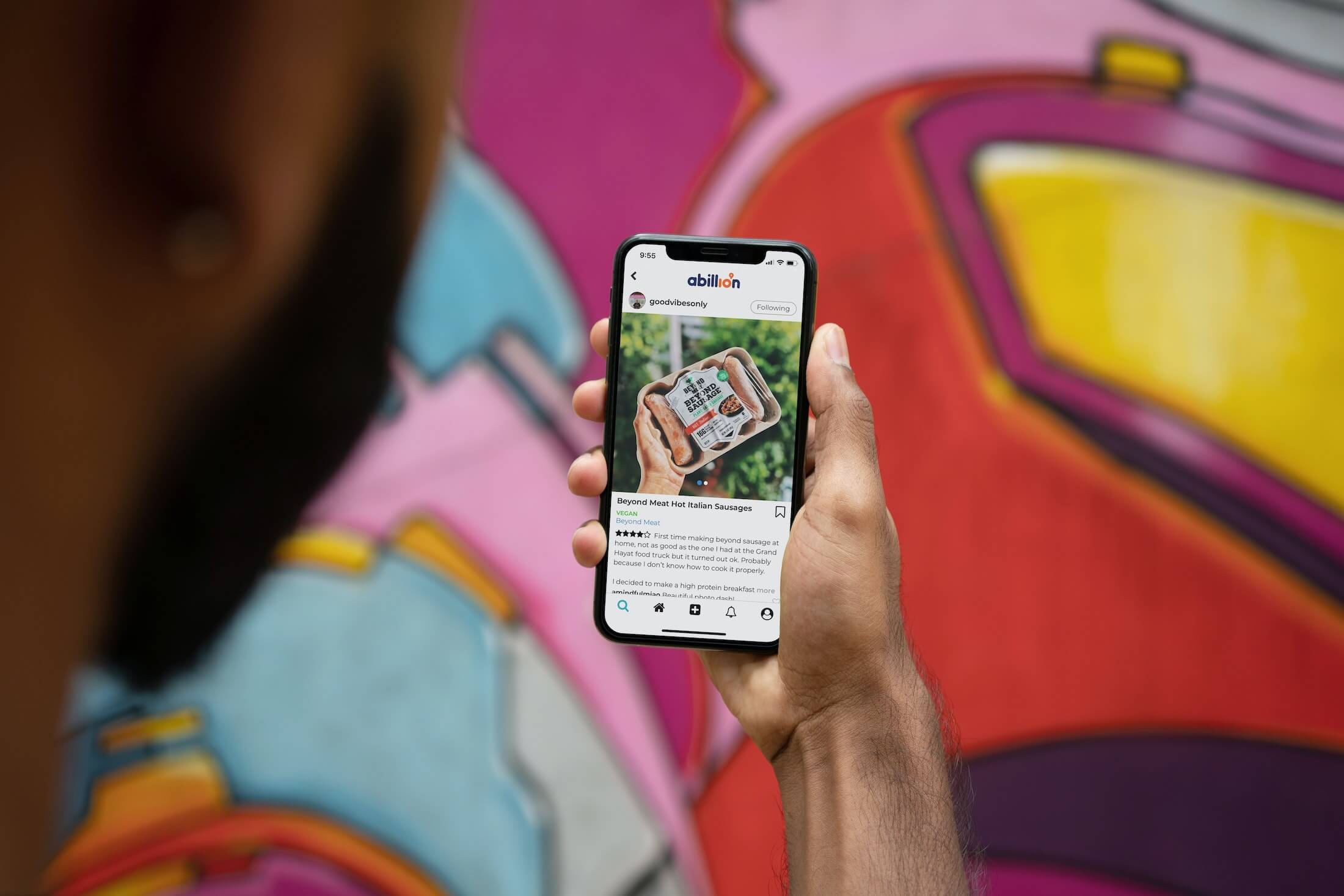Social proof is an exciting way to grow your business and reach new customers.
The term may sound daunting. “What the heck is social proof??” you may be asking yourself.
Social proof is more common than you think — in fact, you’ve probably encountered it online several times today with just normal internet browsing!
So what exactly is social proof?
On a website, social proof is evidence that customers can trust you.
They’re things like testimonials and product reviews. These tell customers that other people have found value in your service or product.
For example, we include testimonials on our online portfolio because they show the value web design clients received from our services.
Other examples include professional memberships and certifications that demonstrate your knowledge and experience.
Why do you need social proof on your website?
Testimonials, reviews, and awards prove that your business has value.
They encourage consumers to trust you — which makes them more likely to give you their contact info, hire your company, or purchase your product.
Let’s dive deeper into why social proof matters, plus common types of social proof. Then, we’ll cover ways you can gather social proof for your website.
Why does social proof matter?
At its core, social proof is an effective way of convincing others that your product or service is good (and worth the cost).
It influences key buying decisions like whether to purchase your product, sign up for your freebie, or provide their contact information.
Some web designers forget to ask about social proof — but gathering social proof is an essential step in the web design process!
Without social proof, it’s much harder to convince website visitors to trust your website. A completely new visitor to your site is more likely to be skeptical if they see no reviews, testimonials, or proof that you’re legit.
That said, social proof is only as trustworthy as the source.
An award for “Best Social Media Marketing Agency” is impressive if it comes from industry leaders…but less impressive coming from a random Joe Schmoe.
Similarly, people trust what others have to say about products and services…but only if those other people seem authentic.
Have you ever noticed how many website testimonials include a photo? That’s because photos make testimonials seem more reputable! The more reputable you make those who give testimonials appear to be, the more authentic they seem.
This is also why some companies include customer logos with their testimonials — it makes them seem trustworthy because other businesses trust this person’s opinion enough to put their logo alongside it.
Let’s take a closer look at some of the most popular types of social proof.
On websites, social proof includes reviews, recommendations, endorsements, memberships, badges, certifications, and awards.
User Reviews
User reviews highlight the features of your product or service. You’re probably familiar with reviews shared through websites like Yelp, Facebook, and Amazon. These reviews are popular ways to share customer feedback about your business’s products or services.
Of course, not all reviews are text-based. Videos are also great ways to gather social proof because they make a review seem even more credible and trustworthy. Images increase authenticity, and videos increase it even more. Video testimonials and feedback can be snippets from previous clients, or even full reviews.
Expert recommendations
Experts and collaborations are perfect for gaining social proof through third-party endorsements. Think of doctors endorsing a certain diet, or techies recommending specific apps. These experts provide clout and reputation because audiences trust that they know what they’re talking about.
You’ve heard “don’t take my word for it” before, right? Well, now you’re saying do take my word for it – because these are the people who know best!
Celebrity endorsements
Have you ever seen a Kardashian sister promoting beauty products on social media? This is an example of celebrity social proof.
When it comes to social proof, celebrity social proof can be very powerful because people trust the celebrity. In fact, many people like this type of social proof just as much (or even more) than expert recommendations because they’re familiar with the celebrity.
Memberships
Membership in a professional organization is another form of social proof. If a website has a seal from the Better Business Bureau or a similar organization, that can be very beneficial for establishing legitimacy.
Displaying membership seals and badges on your website indicates to your audience that you are trusted and bonified in your industry.
Trust Badges
Trust badges are similar to membership seals. In the world of e-commerce, trust badges such as “Secure Checkout” and “Money Back Guarantee” are powerful tools. These badges verify that your website is genuine by informing visitors that it is secure and that data they provide will be handled through reliable third-party service providers.
Over 75% of consumers report that seals affect their trust in websites, which are traditionally visible during the checkout process. Some websites also display these badges on the homepage or website footer.
Certifications
Professional certifications are another type of social proof. Similar to professional memberships, certifications demonstrate your knowledge and experience in your industry.
Certificates such as the Google Fundamentals of Digital Marketing Course provide official recognition and a stamp of approval by an authoritative figure.
Awards
Awards are a final type of social proof. Winning an award demonstrates professional recognition and proficiency.
Many awards are typically given out to respected businesses based on merit such as customer satisfaction ratings, charitable donations made over time, number of years in business, etc. When visitors see that you’ve been awarded special recognition, they are more likely to trust your authority and experience.
Gathering social proof for your website can be simple and straightforward.
With so many different types of social proof, you may not know which to gather for your website. You may even be unsure of where to start — perhaps your business is brand new, so you don’t have any feedback or awards.
Never fear! There are several easy ways to gather social proof. Here are some of the most common:
Testimonials
First off, ask your customers for their thoughts. Testimonials should be from actual customers who have purchased your product or service and can share their experiences with you.
It’s best to ask specific questions to help customers articulate how your product or service helped them. For example:
- Before contacting me, what problem did you have?
- How was this problem negatively affecting you?
- What fears or hesitations did you have before working with me?
- What results have you seen from my services?
- Did I solve your problem? How are things better for you now?
Start asking for testimonials from your very first customer. Once you have one testimonial, the ball is rolling and more will come in.
Reviews
Reviews show that other people trust the quality of your product or service by providing their feedback on third-party platforms like Google, Yelp, and Facebook. Unlike testimonials, reviews are typically posted on third-party platforms.
Reviews make a big difference for online audiences. Take Facebook for example — 80% of people say they’re more likely to purchase if they see positive user reviews, and 41% say the most important factor in engaging with a local business’s page is customer reviews and ratings.
Be sure to send each customer a review request. To make it extra easy for your customers, include links and directions for how to leave a review on each platform.
Awards, Memberships, and Certificates
Have you won an award, joined a professional organization, or completed a professional course? If so, add this proof to your website! Show off your achievements and remind your audience that you are an expert in your industry.
If possible, use images (such as badges and seals) to provide immediate visual social proof on your website. Place these images on your homepage or footer — or even both! That way, your audience receives visual cues that your business is valuable and trustworthy.
Trust Badges
Finally, add trust badges to your site. Especially if you have an e-commerce site, add reassuring badges such as “Secure Checkout” and “Fast Shipping.” Even if they seem redundant, it’s worth reminding your customers of these facts.
Skipping this step can cost you serious business during the checkout phase. 76% of consumers say these types of seals affect their trust in a website. And another 61% have not made a purchase because there were no trust badges on a website!
…
When it comes to your website, you can’t afford to overlook social proof. Reviews, testimonials, certificates, and awards demonstrate your trustworthiness. They help convince your audience to spend their hard-earned money on your product or service.
At Studio Anansi, gathering social proof is an essential step in our web design process.
Interested in a new web design?
Get in touch to inquire about our availability.








